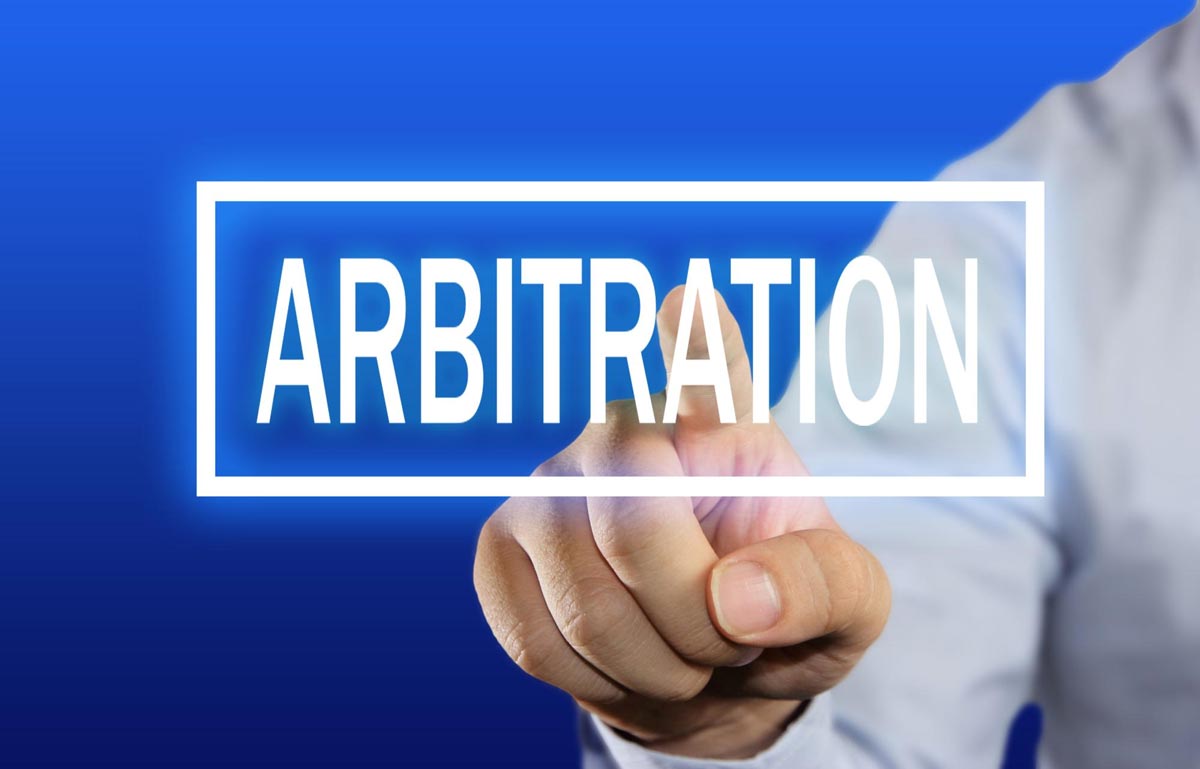Contract Law 101: Understanding Arbitration Clauses In Contracts
Even in the strongest business relationships, things can go wrong. Disputes are unfortunately part and parcel of doing business – whether a supplier has provided defective goods, a customer has failed to settle an invoice, or a business partner has let the side down, if you’re a business owner, you’re bound to experience commercial conflict at some point. However, a business dispute doesn’t necessarily mean you’ll end up in court. Florida contract law recognizes that many parties prefer to settle their disputes through arbitration, and arbitration clauses are an increasingly common feature of commercial contracts.
What Is Arbitration?
Arbitration is one of three alternative dispute resolution (ADR) processes available for those who would prefer to avoid lengthy, expensive court battles. Unlike traditional court proceedings, which are public, arbitration is a private dispute resolution process in which two or more parties have their dispute heard and adjudicated by an independent arbitrator (or an arbitration panel). While the arbitrator typically occupies a similar role to that of a judge, arbitrations are generally less formal and more expeditious than court proceedings.
Although a court can order that parties have their dispute dealt with by way of arbitration (involuntary arbitration), most arbitration proceedings are voluntary, in that the parties have jointly agreed to resolve any disputes that arise between them by way of arbitration. This ‘pre-dispute’ arbitration agreement will be recorded in an arbitration clause in the parties’ contract.

What Are The Advantages Of Arbitration?
Before delving into a more detailed discussion of arbitration clauses and the contract law in terms of which they are enforced, it is useful to understand why so many businesses prefer arbitration to ordinary court proceedings. Firstly, as mentioned above, arbitration proceedings are private. That means that the record of filings made in the dispute will not be publicly available. Since many commercial disputes require sensitive business information to be shared with the adjudicator and opposing party, arbitration is far more suitable for those businesses who wish to keep this information confidential during the proceedings.
Secondly, arbitration proceedings are almost always quicker and more efficient than court proceedings. The parties will usually agree to a timetable for the arbitration with the arbitrator, and generally, the only constraint impacting the hearing date is the arbitrator’s schedule. For this reason, arbitration proceedings are also often more cost-effective: though arbitration lawyers will need to be hired and the arbitrator’s fees paid, because the process can be wrapped up in a matter of months, the parties’ legal expenses are usually lower.
A third advantage relates to the expertise of the arbitrator. Because parties can jointly nominate and appoint an arbitration panel of their choosing, they have the option to select an arbitrator with experience in a particular area of law (for example, construction or maritime law) who will be best placed to resolve their specific dispute.
Are Arbitration Clauses Enforceable Under Florida Contract Law?
Thankfully, Florida courts strongly favor upholding arbitration clauses. This is not only because the courts seek to uphold and give effect to the intention of parties to a contract whenever possible, but also because there are clear policy justifications for encouraging arbitration: it reduces the courts’ caseload and protects access to an important public resource (the judiciary). Note that when parties disagree over whether their arbitration clause is valid and binding, a court – and not an arbitrator – must decide whether arbitration should proceed. Florida’s courts generally enforce arbitration clauses, unless one of the following exceptions apply.
Unconscionability
The contract law considerations used to determine the enforceability of a contract in general also apply to the enforceability of an arbitration clause. One of these considerations is ‘unconscionability’. If the arbitration clause unfairly favors one party to such an extent that it would be considered to be against public policy – i.e. is unconscionable – a court will decline to enforce it. For example, if an arbitration clause precludes a party from accessing the usual legal remedies available in traditional court proceedings – such as damages or rescission – the clause will be declared unenforceable.
Fraud, duress or invalidity
If a party was induced to enter a contract either by fraud or duress, this is a further reason why a court may refuse to enforce the contract – including its arbitration provisions. Likewise, if one party to a contract fails to sign it and a court finds that the contract is invalid and of no legal effect, the arbitration clause will not be enforceable.
Ambiguity
Ambiguity is probably the most common reason why a court might refuse to enforce an arbitration clause. If the clause is so poorly drafted that it is vague and unclear, a court may decline to uphold it. That said, courts will generally interpret arbitration clauses broadly to permit arbitration to proceed where possible.

The Basic Elements Of Arbitration Clauses
With all the benefits that arbitration presents, it’s no wonder that arbitration clauses are increasingly included in commercial agreements. However, drafting an effective and comprehensive arbitration clause requires a sound understanding of some basic principles of contract law and contractual interpretation. As any experienced commercial lawyer will tell you, every arbitration clause should include at least the following elements.
Scope
It is crucial that an arbitration clause clearly stipulates which kinds of disputes arising out of the agreement are arbitrable. For example, a clause may provide that any claim for injunctive relief must be brought before a court and is not arbitrable. Most parties prefer to draft broad arbitration clauses that cover all eventualities. It is fairly common for arbitration clauses to state that any dispute or claim ‘arising out of or in connection to’ the contract must be arbitrated.
Binding award
An arbitration clause must make clear whether the arbitrator’s award (i.e. the outcome of the arbitration) is binding or non-binding. If it is binding, the successful party may approach the courts to have the award made an order of court. Once an award has been made an order of court, it can be used as a basis for obtaining the attachment and execution of the unsuccessful party’s assets (should they fail to settle the award).
Selection of arbitrator and fees
The clause must also stipulate a clear process by which the parties will select their arbitrator or arbitration panel. Many parties choose to include a provision stating that the American Arbitration Association (AAA) will appoint an arbitrator to hear the dispute. The clause should also set out how the expenses of the arbitration and the arbitrator’s fees are to be shared between the parties.
Procedure and right of appeal
An arbitration clause should also indicate where the arbitration will take place, the number of arbitrators to be appointed, how and under what circumstances an arbitration may be commenced by the parties (e.g. by written notice following failure to comply with a demand to remedy a breach), the rules that will be applied (for example, the rules of the AAA), and the evidence-gathering procedures that will be permitted (such as discovery or oral deposition). In 2013, the Florida Arbitration Code was revised to include the option of appellate review, widening the circumstances in which a party may seek to review an arbitration award. However, appellate review is only available if the parties choose to make provision for it in their arbitration clause.

Miami Contract Law Specialists
If you wish to include an arbitration clause in your next commercial contract, it is vital that you obtain the assistance of a lawyer with contract law and drafting expertise. You want to be certain that your clause is crystal clear, fair to both parties and easy to practically implement. At Xander Law Group, our commercial lawyers have extensive experience drafting commercial contracts which include arbitration provisions. We are renowned for our meticulous attention to detail, depth of legal skill, and passionate client service. Give us a call today at 1-305-767-2001 and we’ll gladly help you schedule your first consultation.








